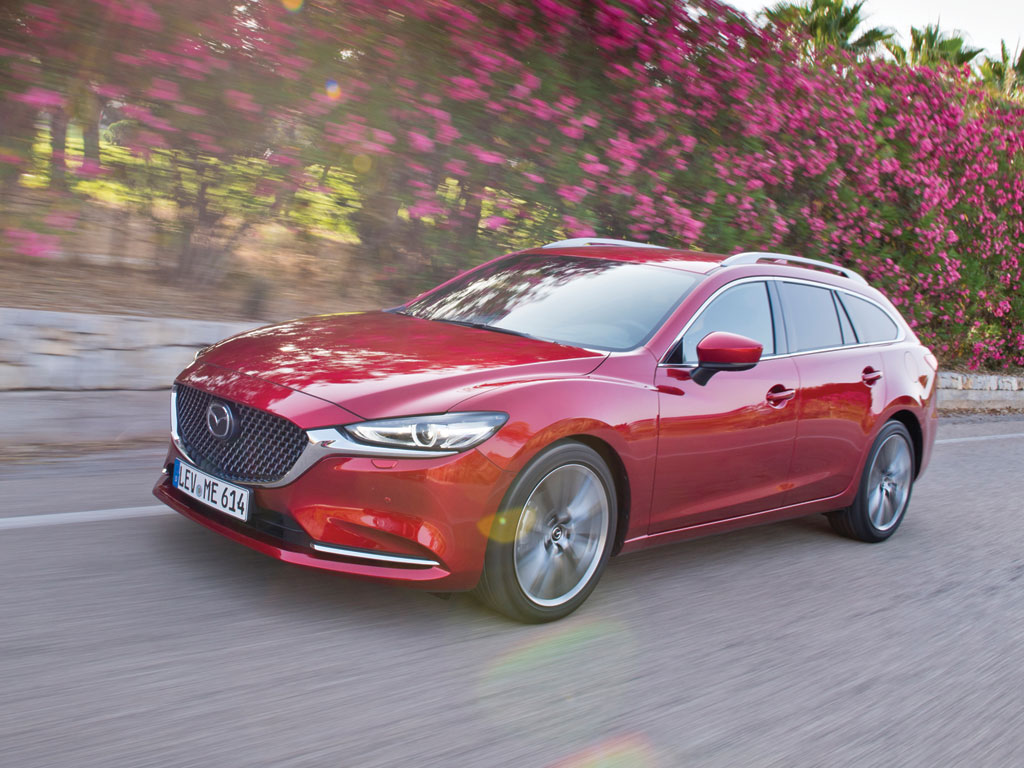Road Test: Mazda6
In a tough sector, the 6 offers something a little different to the norm, says Alex Grant.
- Mazda6
SECTOR Upper Medium
PRICE €27,000-€47,000
FUEL 4.4-6.8l/100km
CO2 117-156g/km
Launched as part of an all-new range in 2013, the Mazda6 perhaps arrived too late in Europe to get the recognition it deserves. Mazda’s former best-selling nameplate faces the same challenges as its rivals; fending off SUVs (including its CX-5 stablemate) and premium brands. Surviving means doing things differently.
Those challenges don’t get any easier. Diesel engines, the default choice in this sector for many years, aren’t quite the easy win they were five years ago – even among the fleets that make up most of Mazda’s European volume for the 6. So, behind a new nose that’s similar to the latest CX-5, it’s adjusting to an ever-tougher, ever-changing market.
However, it still isn’t following the crowd. Mazda believes in ‘rightsized’ engines, so the 2.2-litre diesel lives on in 150hp and 185hp guises, both now featuring AdBlue injection, and available with an automatic transmission, though this significantly hikes up CO2 emissions. The petrols are unusually not turbocharged, comprising 145hp and 165hp 2.0-litre units, and the 192bhp 2.5-litre for the first time in Europe.
Mazda certainly sees a future for diesel, but tax advantages and public perception aren’t what they were.
The petrols are certainly appealing alternatives, offering progressive power delivery and close to official fuel consumption figures on a mixed route – particularly impressive for the 2.5-litre engine, which runs on two of its four cylinders when it’s not working hard. However, that’s only available on top trim levels.
Otherwise, cabin quality has improved markedly, refinement is impressive and, while fine-tuning to the chassis is harder to detect, this remains the benchmark driver’s car in its class. Adaptive cruise control is now standard range-wide, and Android Auto and Apple CarPlay are attractive options for business users. All are great reasons not to follow the migration away from this segment.


